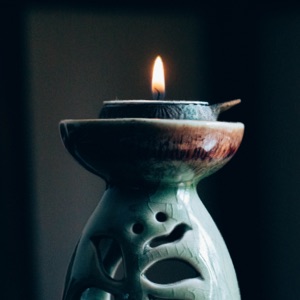Ovarian Cysts
There are many types of ovarian cysts and it is important for your doctor to look at a cyst closely with an ultrasound examination in order to identify if it is fluid-filled, solid or mixed. The shape, size and location are all important factors in determining if it can be left alone or if it should be removed or biopsied. Sometimes cysts can be related to endometriosis or PCOS and should be treated accordingly. However, the most common types of cysts are just fluid-filled follicles that did not rupture during ovulation to release the egg. Termed functional cysts, they usually go away within the menstrual cycle and cause no further problems. Sometimes they can be felt as twinges of pain or like a heavy ache in the abdomen. Occasionally a functional cyst can grow and then rupture causing intense abdominal pain until the fluid contents of the cyst are reabsorbed by the body. For women who have a tendency to develop these cysts often, you want to look more closely for an underlying imbalance causing this pattern in order to preserve the natural function of ovulation and fertility.
How can Chinese Medicine and Acupuncture help ovarian cysts?
In Chinese medicine we view a cyst as a collection of stagnant fluid and blood. While usually not a life-threatening situation, it is nonetheless viewed as a disruption in the body’s healthy processes. Women who have cysts have a hormone imbalance and are not ovulating optimally. Acupuncture helps to bring balance to the endocrine system and hormones and can directly affect ovulation. There are many acupuncture techniques to help improve blood flow to the reproductive organs and optimize ovulation.
Chinese herbs may be used to help dissolve painful cysts as well. Women who have a tendency to develop cysts may have a pattern of symptoms that go along with this condition. It is possible that there are issues with sluggish digestion and the body produces excess mucus and dampness. This inefficiency can lead to dampness accumulating in other areas of the body as well such as ovarian cysts. Herbs can be used to improve the digestion and drain any dampness that is causing the body to develop points of stagnation.
How many treatments will I need?
Your acupuncturist will perform a detailed health and medical history with you and decide on a course of treatment. If it is an acute situation where you currently have a painful cyst, herbs will be used to resolve the cyst within a couple of days. If you develop cysts regularly then treatment will be suggested according to this chronic condition and will most likely include herbal medicine.
What other tools am I given to ensure my treatments are effective?
Diet can play a role for women who regularly get ovarian cysts. Rich diets with excess animal fats, sugar and dairy can stress your digestive system. An inefficient digestive system will produce extra mucus and leave you feeling tired, sluggish and heavy. This is the optimal environment for dampness to stagnate and create obstructions in otherwise normally functioning systems. Exercise is also important to keep things moving. Your acupuncturist will go into further detail about your particular diet and what modifications you can make for the best results.


